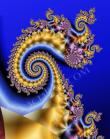From the Amazon.com description of Immanence & Transcendence in Thomas Pynchon's Mason & Dixon: A Phenomenological Study, by Joakim Sigvardson:
The investigation studies Thomas Pynchon's Mason & Dixon as a novel that comes to giveness in terms of three strata of manifestation: the arty, the rhizomatic, and the acosmic. Utilizing an affective turn implemented within the phenomenological movement by Michael Henry, the study proposes that alongside a rhizomatic mode of accessibility promoting transcendence, Mason & Dixon manifests a withholding of transcendence. The study investigates the manifestation of this ontological withholding by carrying out the phenomenological reduction established by Edmund Husserl, and by elucidating the phenomenon of immanence in the literary text by means of a theory of auto-affection rooted in - but not reducible to - such methodological reduction. The study proposes that the thematization of anomaly in Mason & Dixon may be unconstructed by means of phenomenological moves that uncover strata of phenomenalization that are not apparent on a thematic or merely playful level. These strata, with their promotion of immanence at the expense of transcendence, are found to be complexly affective in nature. The affectivity governing the withholding of transcendence in these strata is discovered to be instrumental in the work's critique of colonial modes of spatialization, of logocentric modes of transcendence, and of post-Nietzschean modes of affective mastery.
Based upon this description, I have decided to ontologically withhold my immanence from Mr. Sigvardson's fine opus, in that I have not yet phenomenologically investigated even the outer strata of Mr. Pynchon's transcendental objective correlative, namely the book about which Mr. Sigvardson's book is logocentrically concerned. So be it. There is little enough time to explore the rhizomatic giveness of existence let alone the acosmic craperia.










 Sudoku
Sudoku
